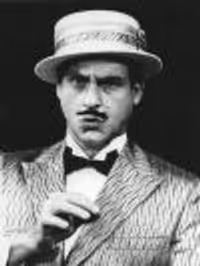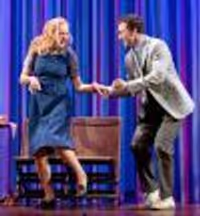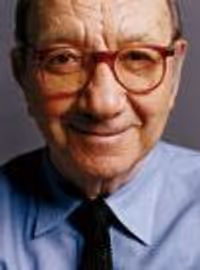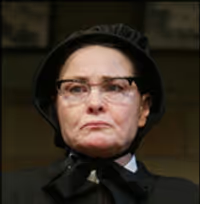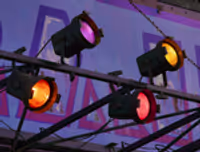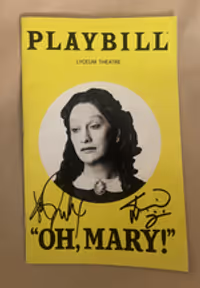CULT OF LOVE Previews
#1CULT OF LOVE Previews
Posted: 11/19/24 at 12:00am
The holidays are getting a little more fractious in Times Square.
Cult of Love starts up at the Helen Hayes Theatre tomorrow night (November 20) before a December 12 official opening. The new play, which marks Leslye Headland’s debut as a playwright, stars Shailene Woodley, Zachary Quinto, and Barbie Ferreira, along with Molly Bernard, Roberta Colindrez, Rebecca Henderson, Christopher Lowell, Mare Winningham, David Rasche, and Christopher Sears. Cult of Love, directed by Trip Cullman, runs through February 2.
“It’s the holiday season for the Dahl family! The four adult children return to their childhood home with partners in tow. The Dahl traditions include singing carols in harmony at the drop of a hat, but the gathering is anything but harmonious. Old conflicts resurface, new issues battled, and dinner is taking absolutely forever to be served. Will the love the Dahls have for each other be enough to get them through, or will this be their last Christmas together?”
Who’s heading over for the gathering?
#2CULT OF LOVE Previews
Posted: 11/20/24 at 5:04pm
Anyone here going to tonight’s first preview?
And does anyone know what the running time is yet?
Fordham2015
Broadway Star Joined: 4/3/17
#3CULT OF LOVE Previews
Posted: 11/20/24 at 5:10pm
Looks like it was 1:40 with no intermission at Berkeley Rep, so I'd guess something similar
https://www.berkeleyrep.org/shows/cult-of-love/
#4CULT OF LOVE Previews
Posted: 11/20/24 at 9:58pm
Any first thoughts?
#6CULT OF LOVE Previews
Posted: 11/20/24 at 10:57pm
I haven’t seen this production, but I did catch the show at Berkeley Rep and loved it. Fingers crossed the new cast finds the same magic. It has some commonalities with Appropriate and The Hills of California, but with a much lighter tone throughout.
#7CULT OF LOVE Previews
Posted: 11/21/24 at 7:49am
dysfunctional family drama. sign me up. huge fan of Leslee's curious to read initial thoughts on the show
#8CULT OF LOVE Previews
Posted: 11/21/24 at 12:48pm
Sauja said: "It has some commonalities with Appropriate and The Hills of California, but with a much lighter tone throughout."
Seeing it tonight and this description alone has me excited! Best play of last season combined with my favorite this season thus far is a great description
#9CULT OF LOVE Previews
Posted: 11/21/24 at 1:50pm
dearalanaaaa said: "Sauja said: "It has some commonalities with Appropriate and The Hills of California, but with a much lighter tone throughout."
Seeing it tonight and this description alone has me excited! Best play of last season combined with my favorite this season thus far is a great description"
hopefully I haven’t oversold it!!!
#10CULT OF LOVE Previews
Posted: 11/22/24 at 12:38am
I saw this tonight and honestly? I didn't like it all that much. My spoiler-free (ish) thoughts.
I'm a fan of the entire family drama setup, but I didn't like how disjointed and thrown together a lot of this felt at times. Evie and her wife Pippa are struggling against the homophobia she's facing within the religious background of her family, and then the next second nothing's happened and they're all singing as a happy family. This is clearly a deliberate contrast, but it's not a good one. It doesn't help validate her struggle at all, and Pippa's character is constantly frustrated by this. The actress for Pippa does an amazing job within the constraints of her role!
Diana and James as characters are probably the two most exhausting characters I've seen in a play this entire season. I don't even want to elaborate on this since so much of this would be a spoiler, but she's beyond insensitive and borderline cruel to everybody around her, then Evie claims it's an unaddressed mental illness but nobody cares (which she also states their father has), and every time they opened their mouth I wished it could be censored out of the entire show. I understand and love a great "villain" of the family, but they're just terrible people, and at the end they don't even feel well written, rather like caricatures.
Mark and Rachel as characters were fine. Brilliant actors, but they have the same inconsistent writing issue that Pippa and Evie suffer from. Virginia's character is complex and the "mastermind" of keeping this family charade going, but I'm often sitting there wondering why this charade even exists, even if their motive is family or religion. The motive as "religion" at the core creates a few massive holes, and the show makes commentary on religious trauma, homophobia, mental illness, and familial relationships when it should really only be focused on 2-3 of these things.
Johnny's actor is working overtime to entertain the audience through this whole thing, and the service is appreciated. Lauren as a character plays off of him and everybody around her so well too, so no complaints there.
POSITIVES (if you were looking for them):
I loved the playbill's inclusion of who every character was and their relationship with one another. Very helpful! The standout performances for me are Zachary Quinto, Barbie Ferreira, and Christopher Sears. The set is very enjoyable to look at, and the physical direction of the actors is great. The runtime felt a bit long, but I'm sure previews is the time to tighten that. Also, I enjoyed the music! They're all great singers, though the singing did at times take us out of the show versus move the plot along.
Onto my spoilers/questions...
Diana and Bill are mentally ill sure, but are they supposed to be that insufferable? Bill I could understand completely how dementia does that to a person. Virginia's lack of acknowledgment of their illness is so intrinsic to the show, and I think they portray this fine.
I'm so confused why Evie returned at the end. Did that symbolize something? Rachel never comes back nor does Lauren, but Pippa and Evie do. I think this plot point alone frustrated me- they build her character one way throughout the show and then her actions say something different, just like Mark.
Overall, I think I'd recommend this to somebody who is a fan of Barbie Ferreira, has a subscription package, and refuses to spend money on Hills of California. I also think this could probably be amazing for somebody else to enjoy, but it just wasn't for me.
lesbiansarecrazy
Swing Joined: 11/23/24
#11CULT OF LOVE Previews
Posted: 11/23/24 at 11:15am
Hi!!! Sorry to hear you didn't love the show :/ I know on her instagram story, Roberta Colindrez (Pippa), said something about the back orchestra being special. My friend and I are huge fans of hers, so we're trying to figure out the best place to sit specifically to see her. Does she do something cool in the back orchestra? Any particular sections/seats you'd recommend? Thanks!!
#12CULT OF LOVE Previews
Posted: 11/23/24 at 4:14pm
We are excited to see this one. Some good plays coming up hopefully.
Yessica Haircut
Chorus Member Joined: 7/30/21
#13CULT OF LOVE Previews
Posted: 11/23/24 at 5:02pm
Just got back from the matinee and wanted to chime in. As I mentioned in a previous thread, I had been waiting a few years to finally see a production of this play - it was well worth the wait. I found it to be well-written, funny in all the right places, not heavy-handed, and incredibly well performed (and sung) by the ensemble.
As far as the spoilery questions above:
Diana is absolutely a difficult character and it's not hard to see her coming off as "insufferable", though I have to say there was something in Shailene Woodley's characterization that felt real; I've never known or personally interacted with anyone like her character, and yet I felt as if I knew that person (if the makes any sense). At best, I could say that there maybe was someone genuinely loving and caring in there, but it's bogged down by a whole mess of unchecked mental issues. I also think her breakdown at the end of the second scene showcased the pitifulness of her situation; if she didn't have her family or her husband, she would be some crazy lady on the street spouting nonsense with no one to listen to her.
As for Evie, I have 2 connected interpretations: 1) On a "symbolic" level, it shows that the ties of the family (or any family) aren't broken that easily or suddenly; 2) She definitely seemed intent on this being her last Christmas with any of these people, but perhaps she decided to give her mom one last photograph with all of them together, letting her have at least one good thing to remember.
Updated On: 11/23/24 at 05:02 PM
#14CULT OF LOVE Previews
Posted: 11/23/24 at 5:11pm
lesbiansarecrazy said: "Hi!!! Sorry to hear you didn't love the show :/ I know on her instagram story, Roberta Colindrez (Pippa), said something about the back orchestra being special. My friend and I are huge fans of hers, so we're trying to figure out the best place to sit specifically to see her. Does she do something cool in the back orchestra? Any particular sections/seats you'd recommend? Thanks!!"
Hi! I saw left front orchestra and thought it had a good view of everything! I don’t know what happened behind in the rear orchestra but nobody ran into the audience from what I saw.
Also to the other poster thank you for clarifying those two things! I think having known somebody like Diana just made her feel worse imo, but Evie’s motives being double edged make sense. Glad you enjoyed it even if it wasn’t my cup of tea!
#15CULT OF LOVE Previews
Posted: 11/25/24 at 7:19pm
The music in this play adds such an atypical dimension to all the chaos and trauma. Just imagine Peter, Paul and Mary dropping by the Westons for a few Christmas carols. Here we have the Dahl family who all bring their baggage, complaints and love to the festivities. There is a lot of yelling over one another except when they sing. That is why I found the use of music in this play so interesting. They don't list the songs in the playbill but they did Winter White Hymnal (Fleet Foxes), A Soalin (Hey ho, nobody home) and the traditional folk song Shenadoah. There were probably a few others but I personally thought the Shenandoah performance was worth the price of admission. Can't say more, because I don't want to spoil anything.
This is an excellent ensemble, and I could not believe that it was only the fourth preview. I was also surprised that six of the ten actors are making their Broadway debut. Some standouts: Molly Bernard, Christopher Sears, Roberta Colindrez and Zachary Quinto.
Christian family values, love, unfulfilled expectations, pressure, mental illness, homophobia, sibling rivalry, drug addiction, recovery, senility and harmony are just some of the topics you will encounter here. I laughed a lot and rooted for most of them. Recommend.
#16CULT OF LOVE Previews
Posted: 11/25/24 at 7:49pm
I saw this on Friday after catching it twice in Berkeley when it premiered there earlier this year. The play has sharpened and gotten darker, which is I think to its benefit. But all in all, I think I preferred it in California. Which is great for me because I finally get to be one of those snobs who sniffs and says “weeeeeell it was better out of town” but also I am sad that New York is getting a version of the play that doesn’t quite work as well.
The rewrites Headland have done fascinate me. Most are minor and to the better. Pippa’s role, in particular. has been strengthened and in general things are tighter.
The biggest change was in the confrontation between Evie and her mother; on broadway Ginny has become much more of a villain. In Berkeley the confrontation ended with Ginny, while not ever exactly expressing the pride her daughter needs from her, breaking down and reluctantly agreeing to go to the neurologist Evie has set up for Bill and facing up to her fears. We were left with the sense that Evie will in fact be continuing a relationship with her parents and taking the role of primary caregiver as they decline. On Broadway, that resolution is very much reversed. Given the play’s autobiographical nature I am fascinated by why Headland changed Ginny’s arc. It feels sadder but more natural. I can’t help wonder if this reflects her real life relationship with her mother, which theoretically could have been impacted by the election…or by your daughter putting an unflattering version of you onstage.
My biggest problems with the Broadway production was Shaline Woodley. And look, she does fine. She has ideas about the character and handles the music credibly. But when the play premiered at Berkeley Rep, Diana was played by Kerstin Anderson, who was spectacular, and I am so sad that they didn’t keep her in the cast for Broadway. She played the role with an affection and innocence that belied the horrible things she was saying (and she says some HORRIBLE things). Plus, she has a striking, angelic soprano, and Woodley is a competent-ish singer and that genuinely helps humanize the character. Combined with Woodley's more blunt and muted portrayal, it doesn't land the same way. In Berkeley Diana seemed genuinely driven by a warped sense of concern for her siblings, on Broadway she is more of an insufferable moralizer.
Notably; when Diana spirals into her psychotic episode; Woodley is more understated, smaller, slower in this speech. Anderson not only seeded instability throughout, she jumped off the ledge with both feet first, spouting gibberish at a delirious pace that felt genuinely worrying but had a sense of internal logic. I understood why James believed she was channelling something divine - there was a beautific aspect to her horrifying madness. But here Diana feels very terrestrial. She’s just less three dimensional and interesting in Woodley’s hands.
The music is very important in the play - the family is coming apart at the seams and using singing and playing together to cover up the cracks. In Berkeley; the actors playing the Dahls were all very solid musicians, and here they are mostly actors who are…doing their best. Woodley and Quinto are currently very tentative whenever they start singing or playing. Rebecca Henderson manages okay but has the least music making to do; David Rasche and Mere Winningham are solid. There’s no need for this family to feel like professional musicians, but they have spent their entire lives making music together, and right now the only one who feels truly comfortable playing or singing is Christopher Sears.
The staging of the end of the play has also been altered so it is less clear whether or not it is happening in reality; in Berkeley, the siblings stepped fully out of the scene to sing as the rest of the cast froze behind them; here they remain in the pose for the final photo. It’s a confusing choice. Did anyone else feel uncertain here?
Finally, the action and set feels a bit more stagey than they did in Berkeley. The Hayes is a narrower stage than Berkeley Rep and the action feels more cramped and less naturalistic, with more happening front and center. Action on the staircase is effected by this, as it feels way more prominent.
As for positives - Molly Bernard had gone from being a highlight of the show to walking away with the entire thing. She’s the one person who could grab a nom for this, I think. Barbie Ferrera is making a very credible stage debut in a tricky role. Mare Winngham and David Rasche are impeccable as always. Christopher Lowell and Christopher Sears (both highlights in Berkeley) are doing stellar work in tricky roles; Sears lights up the stage when he comes on after an hour of being talked about and Lowell is great at bringing just enough idiocy and weakness to his dickhead of a character that he remains human. Rebecca Henderson and Quinto do excellent work as the play’s nominal leads and I think once they settle in to the music, will give very worthwhile performances.
In answer to one of the other posters, no, nothing happens out in the audience for this and there’s no “special” place to sit. Good luck with the width of the seats though - along with the Lyceum's mezz this was the most cramped I was the whole trip.
All in all, I'd recommend the piece, but I hope that they really take the preview period to pick up the pace and find some additional shading. It's been fascinating watching the play evolve. Curious to see if any rewrites go in during previews and what shifts!
yyys
Broadway Legend Joined: 6/29/14
#17CULT OF LOVE Previews
Posted: 11/25/24 at 8:31pm
Also, they did "Children, Go Where I Send Thee" -
here's Kenny Rogers' version (LOL!)
https://www.youtube.com/watch?v=o4qNaAlZ1xc
I prefer Bonny Light Horseman's version:
https://www.youtube.com/watch?v=cQCOxxz139Q
Melissa25 said: "The music in this play adds such an atypical dimension to all the chaos and trauma. Just imagine Peter, Paul and Mary dropping by the Westons for a few Christmas carols. Here we have the Dahl family who all bring their baggage, complaints and love to the festivities. There is a lot of yelling over one another except when they sing. That is why I found the use of music in this play so interesting. They don't list the songs in the playbill but they did Winter White Hymnal (Fleet Foxes), A Soalin (Hey ho, nobody home) and the traditional folk song Shenadoah. There were probably a few others but I personally thought the Shenadoah performance was worth the price of admission. Can't say more, because I don't want to spoil anything.
"
#18CULT OF LOVE Previews
Posted: 11/25/24 at 11:17pm
yyys: Also, they did "Children, Go Where I Send Thee" …I prefer Bonny Light Horseman's version.
Yes, thanks for sharing that. I really love the Bonny Light Horseman version.
#19CULT OF LOVE Previews
Posted: 11/28/24 at 11:41am
I saw it last night. It felt like a play in previews that needed tightening up and some of the cast seemed to be finding their way .The dialogue at times felt like it was from the page rather than the moment. The set was impressive but might have hindered the play somewhat due to its sprawling nature. It negated the downstage area which I thought was too bad. I understood the reason for the singing but there was too much of it. The play bogged down towards the end rather than propelling itself forward. My viewing experience suffered somewhat from being high up in the balcony for the actors with the exception of one, seemed to be playing more to the orchestra. All that being said the ensemble was consistent enough and the themes resonated. It just wasn’t must see theatre. I doubt it will be talked about much come Tony time.
chrishuyen
Broadway Legend Joined: 11/12/14
#20CULT OF LOVE Previews
Posted: 12/8/24 at 5:41pm
I enjoyed this play overall and thought it was a great time (Mare Winningham in particular deadpans some lines that had the audience howling), but I just don't think the characters are there. It was fascinating reading thoughts from the Berkeley production, because I do see the seeds of what Shailene Woodley's character could have hinted at early on, but I didn't realize them until after the fact and some of the character choices felt a little jarring without having that.
My biggest issue is mostly Zachary Quinto's character. I thought he acquitted himself nicely early on, but he has a monologue directed at Barbie Ferreira's character later in the show that I don't think was fully successful, and some of the conflict he played afterwards I didn't think landed as well. But the main problem was that in the whole show I felt like I could never get a sense of what his deal was, so to speak. He'd act one way and then suddenly say something that seemed entirely out of character and I don't know if it's a writing or directing or acting issue but he just never seemed like a real person and felt more like someone they just had say things when they needed to throw a wrench into the the mix.
It's one of those plays where if I think about it for a bit afterwards, I can kind of rationalize who the characters are and the different feelings they're struggling with, but I never felt that while watching the play so it seemed as if it were a bit up to me to put the pieces together. I get that people's relationships with their families can be messy (and a lot of this play seems to be about how family draws you back no matter how much you try to break free), but I don't think the groundwork was well laid to really justify the blow ups that happen.
The singing scenes really marked a drastic change and I don't think the transition in/out of those parts was as fluid or believable as they could've been (there's also one part when Mark is singing with Ginny in semi-darkness where it just seems removed from the rest of the show). The characterizations that had been built up until then seemed to all just go out the window, especially for people like Mark, Evie, and Rachel, and then nothing was addressed about that afterwards. Some spoiler thoughts:
While I liked Molly Bernard's performance, the character of Rachel was also particularly confusing because she said she's been dealing with this for 10 years, and the way that character is portrayed doesn't seem like it. When she walks out at the end, I'm still unclear about why she hadn't walked out sooner since she seemed to know everything about what to expect from a Dahl Christmas. I was surprised at how often she'd join in on the caroling if she disapproved so much of the family as a whole (an issue I had with all the characters really, but she's the biggest outsider after Pippa).
I really think seeing more of Diana's actual mental illness earlier on would've helped, as she just seemed to be a religious zealot and I was almost confused as to why the other siblings were insisting she be seen by a doctor--it felt more like they were talking about a therapist to help her untangle her dependence on religion rather than a more serious disorder involving hallucinations and requiring medication, and it would've helped better explain all the back and forth Mark goes through regarding her.
Ultimately I just don't think the play knows how to clearly define the characters and display the internal conflicts as much as it would like to. I couldn't help but think of Appropriate as a comparison point as well, though I found this to be much less deft. But there are certainly parts to enjoy, and I really loved the use of Shenendoah throughout.
#21CULT OF LOVE Previews
Posted: 12/8/24 at 11:47pm
This play is bit of an odd duck. I need to sit on it for a day and I’ll get back to you
#22CULT OF LOVE Previews
Posted: 12/9/24 at 4:24am
chrishuyen said: My biggest issue is mostly Zachary Quinto's character. I thought he acquitted himself nicely early on, but he has a monologue directed at Barbie Ferreira's character later in the show that I don't think was fully successful, and some of the conflict he played afterwards I didn't think landed as well. But the main problem was that in the whole show I felt like I could never get a sense of what his deal was, so to speak. He'd act one way and then suddenly say something that seemed entirely out of character and I don't know if it's a writing or directing or acting issue but he just never seemed like a real person and felt more like someone they just had say things when they needed to throw a wrench into the the mix.
It's one of those plays where if I think about it for a bit afterwards, I can kind of rationalize who the characters are and the different feelings they're struggling with, but I neverfeltthat while watching the play so it seemed as if it were a bit up to me to put the pieces together. I get that people's relationships with their families can be messy (and a lot of this play seems to be about how family draws you back no matter how much you try to break free), but I don't think the groundwork was well laid to really justify the blow ups that happen.
The singing scenes really marked a drastic change and I don't think the transition in/out of those parts was as fluid or believable as they could've been (there's also one part when Mark is singing with Ginny in semi-darkness where it just seems removed from the rest of the show). The characterizations that had been built up until then seemed to all just go out the window, especially for people like Mark, Evie, and Rachel, and then nothing was addressed about that afterwards. Some spoiler thoughts:
I really think seeing more of Diana's actual mental illness earlier on would've helped, as she just seemed to be a religious zealot and I was almost confused as to why the other siblings were insisting she be seen by a doctor--it felt more like they were talking about a therapist to help her untangle her dependence on religion rather than a more serious disorder involving hallucinations and requiring medication, and it would've helped better explain all the back and forth Mark goes through regarding her.
Ultimately I just don't think the play knows how to clearly define the characters and display the internal conflicts as much as it would like to. Icouldn't help but think of Appropriate as a comparison point as well, though I found this to be much less deft. But there are certainly parts to enjoy, and I really loved the use of Shenendoah throughout."
Some great points here. a few spoiler-y thoughts on what you bring up, below.
I think the inherent struggle of Mark's character is that he, in his heart of hearts, wants to believe in God, and isn't sure if he does or not. He has rejected his parent's version of Christianity, but he speaks passionately when speaking about faith and is in an unresolved place with his faith and his marriage at the end of the play. He's contradictory because he's the sibling most caught in the two worlds of the play - the world Ginny and Bill prefer to live in (where Diana still very much lives) and the outside world where Evie is thriving and Johnny is finding himself after a period of struggle. Mark is stuck and adrift, and the only time in the entire play he seems confident is when he returns to his identity as a preacher. I think it works, though I'm not sure how much of the inconsistency is due to Quinto's performance, which I liked but didn't love in an early preview. I preferred the actor who did it in Berkeley.
Rachel is reluctantly participating in carols and other dinner stuff because she and Mark have agreed to keep their separation private, so they're keeping up a veneer of normalcy. At the start of the play, everyone, with various degrees of resentment and reluctance, is just trying to get through the holiday without incident, which obviously, does not work. It's also implied Rachel has spent a lot of time trying to fit in with the family (she converted and has spent every Christmas Holiday with her husband's family), and now she's barely going through the motions.
I think Rachel walks out in the end because this is her after reaching her breaking point. It isn't necessarily the events of this Christmas, but a previous incident where Diana told her that her miscarriages were due to Mark's loss of faith, combined with Mark's repeated inability to put her needs in front of his family's, that's lead to a breech in the marriage that the events of the play expose as being too deep to come back from. The moment where she witnesses his speech to Lorren is really ambiguous and can be taken a couple of different ways.
The part with Mark and Rachel singing together in darkness (Is it Ginny now? it was Rachel in early previews. Did they change it?) seems to me to be a non-literal moment, much like the singing of Shenandoah at the end. It played to me as a moment depicting their love but disconnect from each other; it was telling that Rachel dropped out of the song at the mention of children. It also covers the transition scene between the play's two scenes; I think in early versions of the play it was a two-acter, and this was where the intermission was. So it's probably more logistical than anything else.
The moment where Diana comes downstairs after feeding her baby, with her dress undone and visibly out of it, very clearly indicates early on that something is up. But you're right, it is a deliberate reveal that her mental issues are so severe.
chrishuyen
Broadway Legend Joined: 11/12/14
#23CULT OF LOVE Previews
Posted: 12/9/24 at 11:36am
ChairinMain, I definitely agree with a lot of what you're saying, but I think the issue for me is that I felt like I had to do the work to piece together the characters after the show with the disparate parts of them that might have felt contradictory during the show, though I agree part of this could've also been Quinto's performance in particular.
Possibly also just me wanting a different directional style too. For plays like this I like to get a good sense of characters early on and then just watch them get set loose and react against the other characters, whereas this felt like it was establishing one facet of the character and then as the play goes on it kept adding things like "oh also this character believes in this" or "oh this character also has this going on" which just felt like it came as a surprise every time, and imo doesn't work as well when there are so many characters to keep track of because you don't have the time to let that form a new view of the character.
Some more spoiler musings:
I do agree that Mark still has strong ties to religion and God, but he's seen how toxic it can be and wants to distance himself from that, like he does with law school. But Rachel mentions how he hasn't really been looking for real jobs and it seemed like law school and his clerkship was more to "prove he could" rather than a lasting break from the church (somewhat like how Loren keeps around a pill of oxy). I do think religion remains his default fallback but he doesn't want to be associated with what he believes "Christianity" to be (ie the kind of stuff that Diana preaches). The problem is that I don't think I saw that conflict enough in Quinto's performance. Thinking about it afterwards it all makes sense but it just didn't come through for me.
I think it's similar with Rachel, though I blame that a bit more on the direction rather than Bernard's specific performance. We already see her being openly disdainful of the family and making pointed remarks, so why would she be afraid to not participate in the caroling tradition? Or even if she does participate, seeing her do so in a way that makes it more clear she's only humoring them would've helped (there's also a reading of this where she could think think that this is a genuinely sweet tradition wrapped up in a lot of layers of problematic thinking and thus have more internal conflict over it too), but she seemed to have jump in with all the fervor of the other Dahl siblings which I found hard to believe even if they weren't having marital troubles.
The semidarkness scene does have Mark singing with Rachel initially, then she switches out with Ginny, which is partially why I thought it it felt like more of a literal scene. The fact that none of the other scene changes occur like this also didn't help so it just seemed confusing to me (also with the rest of the cast in the background resetting the table--it was hard to tell if they were actually setting the table to eat in the scene or if it was just a scene change). For what it's worth, I also see the Shenandoah at the end as semi-literal, like I believe John actually does start singing there and ends with "the world in misery" but the harmonies themselves are probably more a callback to what they did when they were kids.
I did notice that moment with Diana's dress unbuttoned, and it makes sense in hindsight, but I brushed it off as "mom brain" or her just not paying attention with the chaos of everything else happening. Maybe it's intentionally not supposed to ping any red flags, but I personally would've wanted to see more that was "off" about her earlier on. I'm not sure if the idea was that she says all the terrible things she does to people but then you're supposed to forgive that due to her mental illness (or at least feel more torn about it), but if it was I don't think it really landed successfully either.
Not really a spoiler question, but the kids' names are Mark, Eve, John, and Diana. I'm not super well versed in Christianity but how does Diana fit in?
gibsons2
Broadway Legend Joined: 8/26/19
#24CULT OF LOVE Previews
Posted: 12/9/24 at 12:11pm
chrishuyen said: "
Not really a spoiler question, but the kids' names are Mark, Eve, John, and Diana. I'm not super well versed in Christianity but how does Diana fit in?"
Diana is very much a christian name.
#25CULT OF LOVE Previews
Posted: 12/9/24 at 3:29pm
Diana's a pagan name (roman goddess of the Moon/Virginity/the Hunt) but it is associated with divinity, which makes sense for the character. I don't know how specific or symbolic the names of the characters are. Leslye Headland has discussed in interviews that the play is loosely autobiographical (Diana and Mark are loosely based on her real siblings, Johnny as far as I know is not.)
Videos



